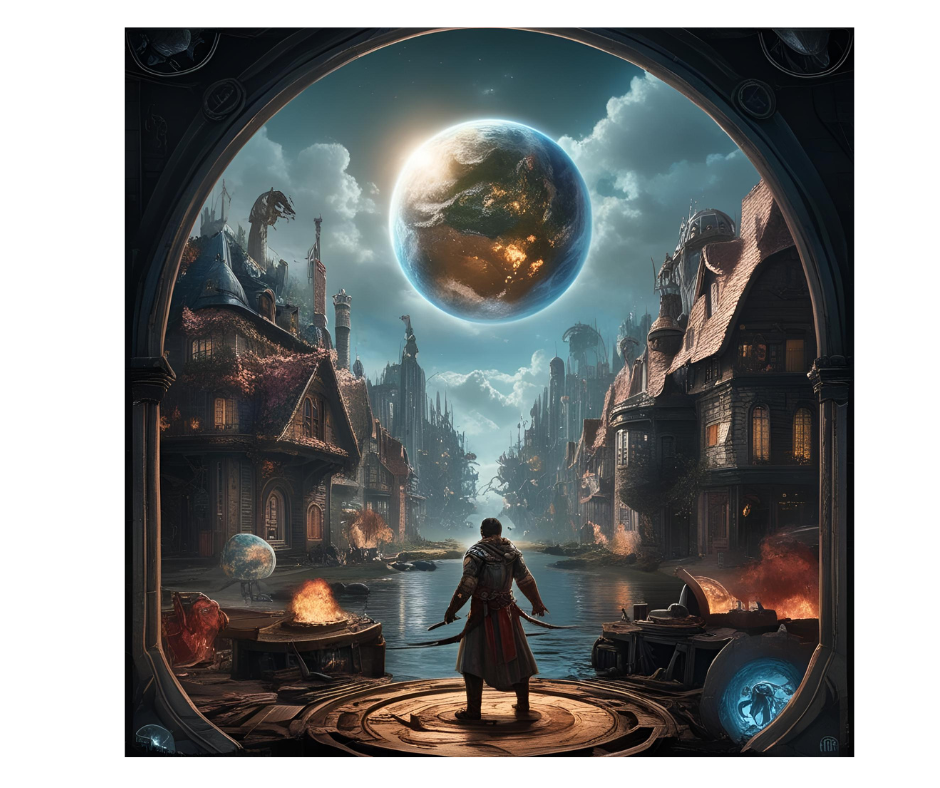Life often surprises us with its quirkiness—a twist of fate here, a coincidence there, and suddenly, we find ourselves pondering bigger concepts. As I sit here contemplating the vastness of the universe and the web of possibilities it presents, I can't help but ask the question: Are we living in a parallel world? This thought isn't merely a passing whim; rather, it dives deep into my favorite topics of philosophy, science, and spirituality.
The Fascination with Parallel Worlds
The idea of parallel worlds or multiple universes is not a novel concept; it has been the subject of countless books, movies, and theories. In literature, we often find characters stepping into different dimensions or timelines, searching for a reality more aligned with their desires or dreams. Movies like "Inception" and "The Matrix" showcase a reality that is not as straightforward as we perceive it. But what if I told you that these tales might hold some truths, backed by science?
As Albert Einstein famously said,
"Reality is merely an illusion, albeit a very persistent one."
This quote really defines the essence of our exploration into the nature of existence itself. But are we merely living in one linear reality, or are there various layers and parallel worlds that coexist alongside our own?
The Scientific Perspective
The concept of parallel universes is not solely rooted in fiction; it has also found its way into the realm of theoretical physics. The multiverse theory suggests that our universe is just one of many—perhaps an infinite number of universes that exist simultaneously.
One fascinating concept that supports this idea is the Many-Worlds Interpretation (MWI) of quantum mechanics. Proposed by physicist Hugh Everett III in the 1950s, MWI posits that every decision we make creates alternate realities. In essence, every possible outcome of a decision we face occurs in its own distinct universe. If I chose to take a walk this evening instead of painting, somewhere in the multiverse, there exists a version of me who opted for the latter. This notion leads us down a rabbit hole of "what ifs," making me wonder how many versions of myself are out there, each leading a different life based on choices that may seem small in the grand scheme of things.
Philosophical and Spiritual Insights
Beyond the scientific lens, parallel worlds intrigue us from philosophical and spiritual perspectives. Many spiritual traditions speak of alternate dimensions or planes of existence. Those who delve into the spiritual often speak of the ability to tap into these realms through meditation, dreams, or altered states of consciousness.
In ancient texts and modern metaphysics, concepts such as astral travel or out-of-body experiences hint at the possibility of parallel realities existing just beyond our perception. I remember my first encounter with astro travel. I felt as though I was transported to another realm, where the constraints of time and space melted away. In that moment, it became clear to me that our understanding of reality might just be a narrow view of a much broader existence.
The Role of Perception
Perception plays a crucial role in shaping our reality. The human brain is a marvelous machine that interprets incoming data, drawing conclusions based on our experiences, beliefs, and emotions. What if our perception is merely a lens through which we view only a fraction of what exists? Our thoughts, feelings, and interpretations color our reality, leading us to believe in one single narrative.
When I reflect upon this, the idea that others might be experiencing an entirely different reality simultaneously becomes more tangible. For instance, I was reminiscing with a childhood friend about our shared experiences, yet I realize that we each remember those moments differently, shaped by our individual perspectives.
The Power of Imagination
One of the most beautiful aspects of being human is our capacity for imagination. With it, we can envision worlds beyond our own. Fiction writers and artists often explore these realms, inviting us to imagine lives we’ve never lived. Through art, music, and literature, they tap into the essence of parallel worlds, expanding our understanding of what is possible.
When I pick up a book, I often find myself transported to places and realities that challenge my own. Stories like "Harry Potter" or "The Chronicles of Narnia" open portals to magical worlds, where the ordinary fades away and the extraordinary reigns. These narratives allow me to escape and ponder the countless possibilities that exist beyond my immediate surroundings.
The Practical Implications
So, whether or not we are truly living in parallel worlds, what does it mean for us practically? Embracing the idea of multiple realities can lead to greater understanding and compassion. That small disagreement I had with a friend. Perhaps in another universe, we worked through it with ease. Viewing conflicts and challenges through this lens can help us foster patience and empathy.
Understanding parallel worlds can also inspire us to make bolder choices. If every decision shapes our reality, perhaps it's time to embrace risk and venture into the unknown. What if taking that art class, starting a blog, or traveling somewhere new is not just significant for me, but for all the versions of myself that exist in those potential realities?
Conclusion
As I ponder all these facets of parallel worlds—scientific, philosophical, imaginative—I find myself both curious and invigorated. The question of whether or not we are living in a parallel world might remain unanswered for now, in the meantime exploration of the concept itself opens gateways to profound understanding.
In the wise words of the late physicist, Richard Feynman,
"The beauty of a flower is not its stem but its pattern."
Isn’t that our existence? Some wild tapestry woven from myriad possibilities. While we may only directly experience one thread, isn’t it comforting to know that the entire tapestry filled with parallel lives, choices, and dreams exists all the same, just waiting to be explored?


Comments ()